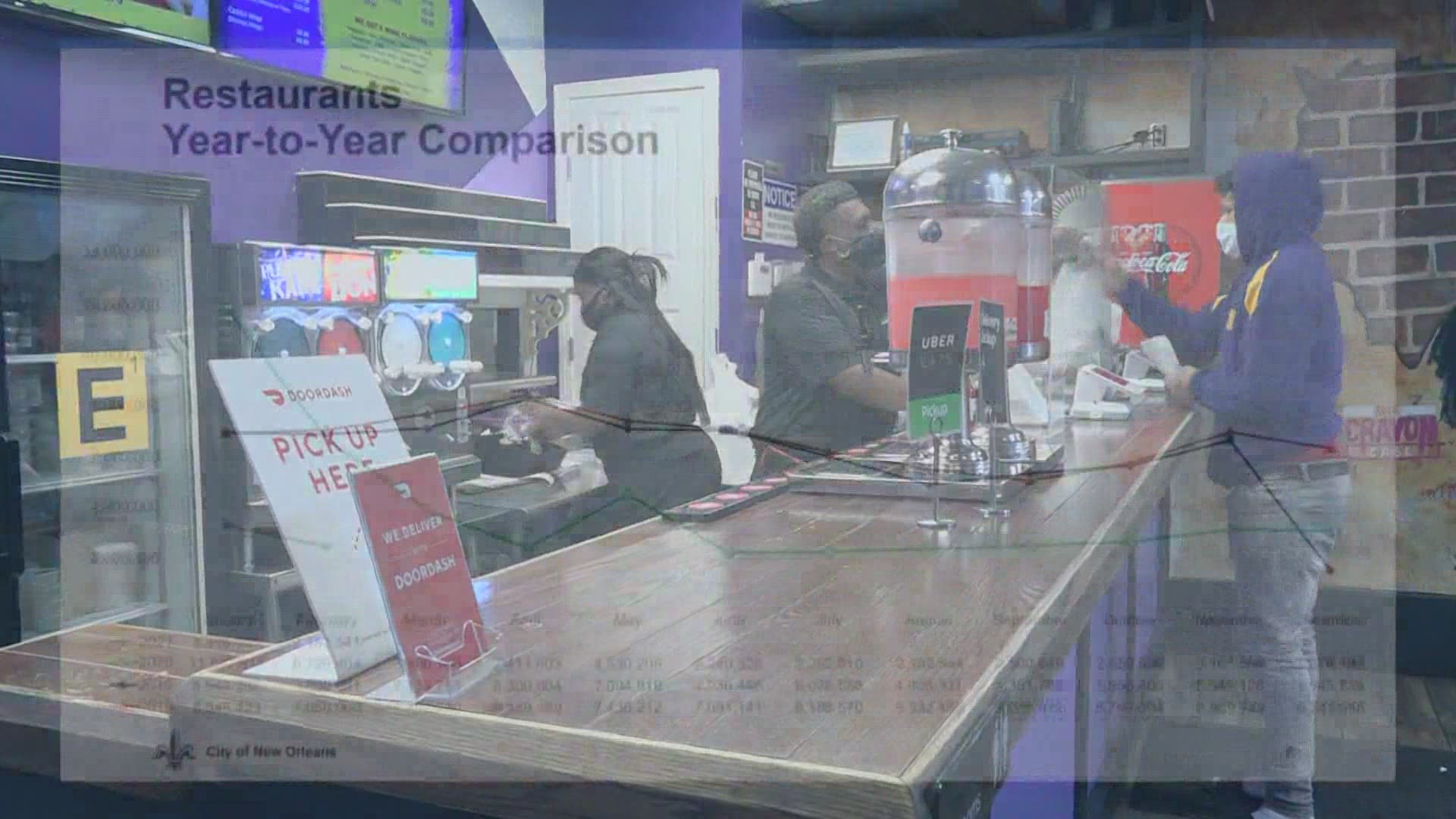NEW ORLEANS — Everyone knew that the tourism industry in New Orleans suffered greatly from the economic shutdown caused by COVID-19, Wednesday, the city council got a look at just how bad things were.
Data showed huge gaps in monthly revenue at hotels, restaurants and bars from previous years.
From a near-total shutdown as the pandemic quickly spread to the limited, partial and sometimes up to 50 percent capacity being allowed, businesses were never able to get a foothold. Fine dining and casual restaurants, especially in the touristy French Quarter had their lifelines basically severed. Bars, seen as a super-spreader with large, raucous crowds that gathered indoors, likely suffered the most – in some instances, for periods of time, they couldn’t even serve to-go customers.
Hotels mostly stayed empty, leaving little work for those who normally tend to the guests.
The data displayed Wednesday showed huge but expected declines in spending at all of those places. At one point the line graph for bar revenue was nearly zero dollars during summer 2020.
The hotel graph showed a flatline – at a very low level – from summer through Thanksgiving.
And, while things are showing signs of opening up, it will take awhile before the major events that brought people to town – like festivals and conventions – are back on the table, so, while things should improve, it could be a slow thaw.
“I think it’s going to take longer for the hotel industry because people are going to have to think about where they want to go, if they start planning convention and meetings, start planning those months ahead. So, it’s not something immediate in my opinion that’s gonna bounce back,” said Randall McElroy, a New Orleans economist.
Restaurant traffic could return sooner, but many dining establishments didn’t make it through the pandemic. The National Restaurant Association said that sales at restaurants nationally were down $240 billion from where they were expected to be pre-pandemic. There is hope that nicer weather in the spring could help those that did survive.
“I don’t really expect them to go back to the normal equilibrium line too,” said McElroy. “I do expect it to creep up a little bit.”
Councilwoman Helena Moreno said she is optimistic for the future, but she thinks the climb back will take a while.
“I just think for the restaurants it could be a long road ahead for them. And that’s what’s going to be so important for the city… to create different ways to help small businesses and restaurants,” she said.
The long road back is just starting and, perhaps, the relief aid heading to the city might be part of the answer to getting back on track.
And, not all of the economic news was gloomy – grocery stores and online sales were much better than in previous years.

